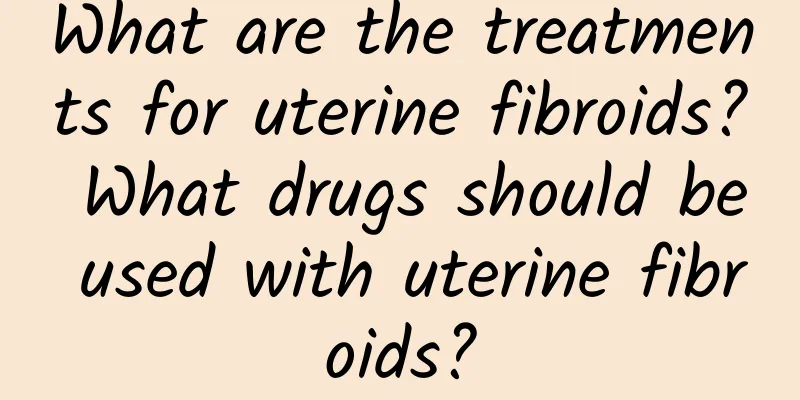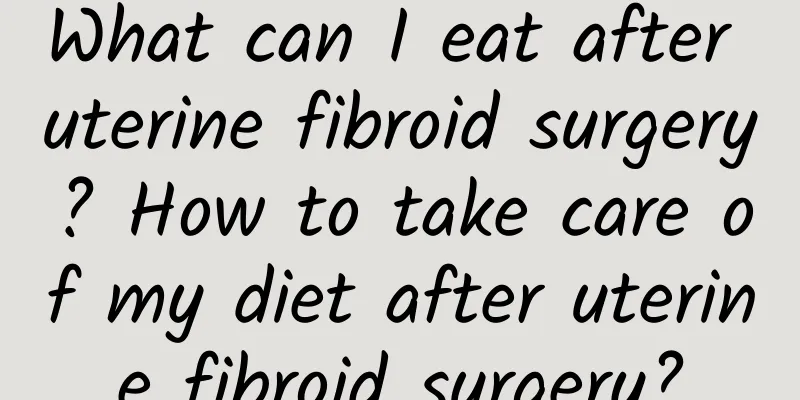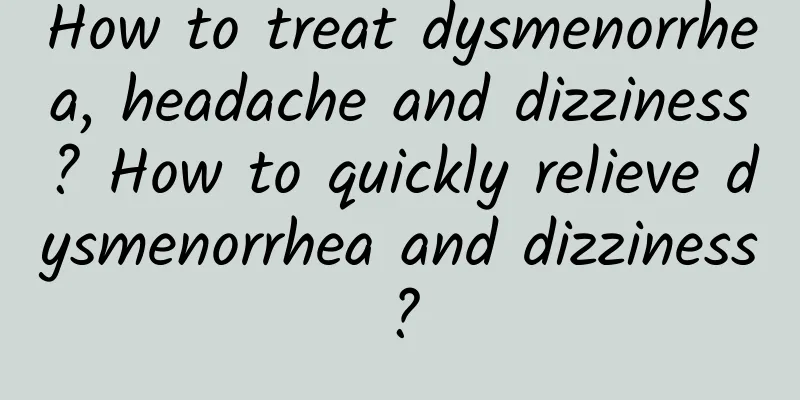What are the treatments for uterine fibroids? What drugs should be used with uterine fibroids?

|
Uterine fibroids are a common benign tumor that occurs in the female reproductive organs. They are also called uterine leiomyoma. According to their relationship with the uterine muscle wall, they are divided into intramyometrial uterine fibroids, subserosal uterine fibroids, submucosal uterine fibroids, and cervical fibroids. Traditional Chinese medicine calls them "stone masses" and "blood gu", which are more common in women aged 35-50. So, what are the treatments for uterine fibroids? What drugs should be used in combination? Uterine fibroids are not easy to detect clinically, most of them have no special symptoms, and are usually found during pelvic examinations. The tumor is generally no larger than the size of a 3-month pregnant uterus. The treatment of uterine fibroids should be based on comprehensive considerations such as the patient's age, fertility requirements, symptoms, location of the fibroids, and the number of filial piety to achieve personalized treatment. Asymptomatic small uterine fibroids generally do not require treatment, especially for menopausal women. After menopause, uterine fibroids can gradually shrink or even disappear. Follow-up can be done every 3-6 months. Drug treatment is mainly short-term treatment, mainly suitable for patients with uterine fibroids with surgical indications. Preoperative medication can correct anemia, reduce uterine volume, avoid intraoperative bleeding, and reduce surgical difficulties. The following are the drugs generally used to treat uterine fibroids: Guizhi Fuling Capsule: Treats lumps, amenorrhea, dysmenorrhea, and postpartum lochia caused by blood stasis blocking the collaterals in women. Uterine fibroids, chronic pelvic inflammatory masses, dysmenorrhea, endometriosis, and ovarian cysts with the above symptoms. Female breast cystic hyperplasia belongs to the syndrome of blood stasis blocking the collaterals, with symptoms of breast pain, breast lumps, and chest and flank distension. Dangui Capsule: It has the functions of promoting blood circulation, eliminating blood stasis, and softening and dispersing nodules. It is used for uterine fibroids, pelvic inflammatory masses, lower abdominal distension and pain, lumbar pain, polycystic ovary syndrome, anal swelling, and deep spots on the tongue caused by qi stagnation and blood stasis. Xiaojie'an Capsule: It can promote blood circulation and dissipate blood stasis, soften and disperse nodules. It is used for breast lumps caused by qi stagnation and blood stasis, breast lobular hyperplasia, ovarian cysts, and uterine fibroids with the above symptoms. |
<<: Will uterine fibroids recur after treatment? What is the recurrence rate of uterine fibroids?
Recommend
It's been seven days since my period began, but I still feel a little shaky
It's been seven days since my period began, b...
What is ovarian cyst puncture surgery
If the ovarian cyst is found to be an obvious ben...
Get your slim waist back with yoga side stretches
In addition to eating less and doing more abdomin...
What to eat to replenish blood after uterine fibroid surgery What to eat to replenish blood after uterine fibroid surgery
After surgery for uterine fibroids, the body need...
Causes of recurrent trichomoniasis
Trichomonas vaginitis is a stubborn disease, beca...
Can CT scans be done in hospitals to check for chronic cervicitis? Four examination items for chronic cervicitis in women
When women have some symptoms of gynecological in...
Do you know the cause of cervicitis?
There are many causes of cervicitis, so what are ...
What are the early symptoms of uterine fibroids?
What are the early symptoms of uterine fibroids? ...
What syndromes may occur after abortion?
Abortion is a remedial measure after contraceptiv...
The dangers of bacterial vaginosis
Bacterial vaginosis is caused by a mixed infectio...
What medicine should patients with uterine fibroids take to treat uterine fibroids? What should they eat to eliminate uterine fibroids faster?
Uterine fibroids are a common gynecological disea...
5:2 weight loss is popular! Wuqing Juice is a good helper for detoxification
It's hot in summer and women wear cool clothe...
Back pain and muscle tension will all disappear with just 2 moves! Quickly train the trapezius muscles and do waist stretching exercises while lying down
Do you often feel back pain? There are 2 great tr...
Is the surgery for uterine fibroids minimally invasive? What factors affect the price of surgery for uterine fibroids?
Is uterine fibroid surgery minimally invasive? Th...
How many years can a person with Bartholinitis live?
The Bartholin's glands are located behind the...









